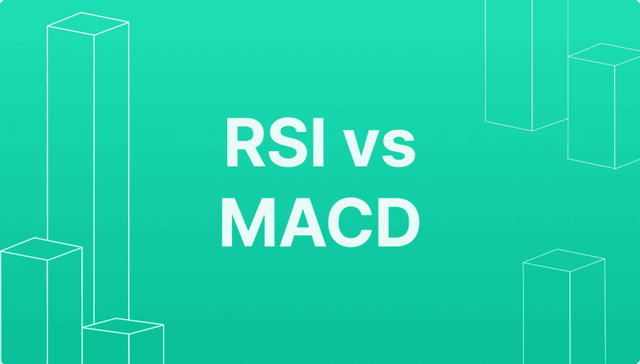What is OTC Trading and How Does It Work?

Over-the-counter (OTC) trading sits at the centre of modern markets. The Bank for International Settlements estimates that the gross market value of OTC derivatives exceeded $20 trillion in 2024, a reminder that much of the world’s risk transfers off exchange.
OTC deals are negotiated directly between counterparties, so desks can move size quietly, tailor terms, and access instruments that never hit a public order book.
This guide explains how OTC trading works in practice and why it matters for brokerages and financial institutions building institutional workflows.
Have a Question About Your Brokerage Setup?
Our team is here to guide you — whether you're starting out or expanding.
What is an OTC Trading Platform?
OTC trading is the direct exchange of financial assets between two parties outside of centralised exchanges. They negotiate terms themselves, often through a broker or dealer, and settle the deal off the public order book. No standardised contract, no auction; the parties agree on what fits the mandate.
OTC touches far more than penny stocks. It spans:
- Fixed income: Many government and corporate bonds change hands OTC.
- Derivatives: swaps, forwards, and options tailored to a hedge or view.
- FX: Most global currency trading happens off-exchange through dealer networks.
- Digital assets: institutions route block crypto orders to OTC desks for discretion.
- Equities: non-listed shares, pre-IPO allocations, and cross-border names.
For brokers, OTC is also a business line:
- Serve VIP clients with block trades, custom spreads, and bespoke settlement.
- Expand the product shelf with exotic FX pairs, structured payoffs, or illiquid names.
- Add revenue streams via negotiated markups, financing, and settlement services.
In short, OTC is a way for financial firms to differentiate, win larger mandates, and keep premium clients.

How Does OTC Trading Work?
OTC replaces the “click-to-trade” exchange model with contact → quote → agreement → execution → settlement. Here’s how the flow looks in practice.
Market Structure
Liquidity in OTC markets comes from a dispersed network of dealers, brokers, and market makers rather than a single book. A client pings several dealers, the broker coordinates responses, and the two sides agree on price and terms. The setup provides flexibility and relationship pricing, though visibility depends on the parties you engage.
Pricing and Negotiation
Prices form through bilateral negotiation, not an open auction. Clients request quotes via RFQ/RFS on electronic platforms, chat, or phone and then select the best terms. Quote quality reflects order size, urgency, current liquidity, the dealer’s inventory, and the credit profile and limits between the two firms.
What shapes the price:
- Order size and time sensitivity
- Liquidity in the underlying
- Credit profile and limits with the counterparty
Trade Execution
Once the client accepts a quote, the parties execute the ticket. Many desks now do this electronically: FIX APIs carry quotes and orders; back-office systems capture allocations, fees, and confirmations. Voice still plays a role for complex or time-critical deals, but the workflow increasingly runs through integrated tools.
Regulation and Transparency
OTC markets operate under a different transparency model than exchanges. Prints are not always public, and rules vary by jurisdiction. Professional platforms bridge the gap with real-time surveillance, trade recording, and regulatory reporting so desks can evidence best execution and maintain complete records.
Risks and Protections in OTC Trading
OTC adds risks you don’t face on a central venue—counterparty default, manipulation in thin markets, and operational errors from manual steps. Robust desks reduce that exposure:
- Pre-trade credit checks and counterparty limits
- Automated KYC/AML and ongoing monitoring
- Post-trade reconciliation, confirmations, and clear dispute workflows
Handled well, OTC combines discretion and control—letting institutions move size, structure, terms, and manage risk without broadcasting intent.
Power your Brokerage with Next-Gen Multi-Asset & Multi-Market Trading
Advanced Engine Processing 3,000 Requests Per Second
Supports FX, Crypto Spot, CFDs, Perpetual Futures, and More in One Platform
Scalable Architecture Built for High-Volume Trading

OTC Market vs Exchange Trading
Exchanges concentrate liquidity in a single public book. You get standardised contracts, transparent prints, and a reference price that’s easy to audit. The model works best for highly traded instruments and smaller tickets where instant matching matters more than custom terms.
OTC connects counterparties directly. Desks negotiate size, price method, and settlement to suit the mandate, then execute discreetly. This is the natural home for block trades that would move the book, customised derivatives with non-standard dates or pay-offs, restricted or cross-border names, and relationship pricing for VIP clients.
Electronic RFQ/RFS platforms narrow the gap between the two. FIX connectivity, automated reporting, and straight-through processing bring exchange-like efficiency to bilateral trades—without surrendering privacy or flexibility.
Regulation and Compliance in OTC Finance
OTC markets are regulated differently from standard exchanges. Rules vary by region, but the obligations for professional firms are clear: know your client, control risk, record activity, and report trades.
United States
Firms operate under FINRA and SEC conduct rules that enforce best-execution policies, books-and-records requirements, and retention of electronic and voice communications. Fixed-income dealers report many trades to TRACE, which gives regulators and the market post-trade transparency. For swaps, CFTC/Dodd-Frank rules add reporting to swap data repositories and mandatory central clearing where products qualify, with margin and risk-management obligations for uncleared instruments.
Europe
Under MiFID II/MiFIR, firms must prove best execution, capture voice and electronic communications, and publish or report trades through approved channels where required. EMIR adds trade reporting for derivatives and mandates risk-mitigation techniques—timely confirmation, portfolio reconciliation, and dispute management—along with central clearing for standardised contracts and margin for bilaterals.
Global Frameworks
Global standards shape the balance sheet as well. Basel III sets capital and liquidity requirements for regulated institutions, while IOSCO outlines risk-mitigation practices for non-centrally cleared OTC derivatives. Supervisors increasingly push for harmonised data (UTI/UPI identifiers and aligned fields) to improve cross-border reconciliation and oversight.
What does this mean in practice?
- Before trade: KYC/AML checks, counterparty onboarding, credit limits, pre-trade risk controls
- At execution: time-stamped quotes and fills, voice/e-comms capture, best-ex policy application
- After trade: confirmations, portfolio reconciliation, dispute management, and regulatory reporting
- Operations: document retention (by jurisdiction), surveillance alerts, and periodic audits
- Settlement: readiness for accelerated cycles (e.g., T+1 in the U.S.) and procedures for cross-border funding
Trends to Watch:
- More electronic workflows and straight-through processing (STP)
- Wider use of central clearing for standardised products
- Higher data-quality expectations from regulators
- Closer alignment between OTC and exchange post-trade timelines
For brokers building or scaling an OTC desk, the takeaway is simple: embed compliance into the workflow—don’t bolt it on later. Choose platforms that automate onboarding, pre-trade checks, surveillance, and reporting across regions.
Discover the Tools That Power 500+ Brokerages
Explore our complete ecosystem — from liquidity to CRM to trading infrastructure.
Types of Over-The-Counter Markets
Below are the common OTC equity tiers used in the United States (operated by OTC Markets Group), plus the Grey Market. The tiers reflect disclosure and eligibility standards; they do not guarantee the quality or future performance of any security.
OTCQX
OTCQX is the highest OTC tier. Many issuers also list on major exchanges overseas or are preparing to do so. Admission requires stronger financial and governance standards, ongoing disclosure, and eligibility reviews. The tier represents a small share of quoted names but concentrates on issuers with better reporting.
OTCQB (Venture Market)
OTCQB, the venture market, serves developing public companies. Issuers must keep filings current, maintain a minimum bid price (e.g., $0.01), and meet governance criteria. Shells, penny-stock designations, and bankrupt entities generally do not qualify. Requirements are lighter than OTCQX but aim to raise baseline transparency.
Pink Market (Pink Sheets / Open Market)
The most speculative venue. It includes foreign issuers, penny stocks, shells, and companies that provide current, limited, or no public information. Because disclosure varies widely, risk and information asymmetry can be high. Some legitimate companies trade here, but investors should expect uneven transparency and liquidity.
Grey Market
Securities not quoted on OTCQX, OTCQB, or Pink. No market makers publicly quote the security, and trading, if it occurs, happens on a limited, ad-hoc basis. Lack of price discovery and public information makes this segment the most opaque and risky.
Note: Tier placement reflects disclosure and eligibility thresholds, not an endorsement of any company’s fundamentals or governance.
Benefits of OTC Trading
OTC markets exist for a reason: some trades need privacy, flexibility, and custom terms that a central order book can’t provide. For brokers and institutions, these advantages translate into better execution for large tickets and a broader service offering for VIP clients.
Flexibility and Accessibility
OTC gives desks room to operate when exchanges can’t. Dealers quote and execute outside exchange hours, and in asset classes that don’t maintain a continuous public book (e.g., many bonds, bespoke derivatives, or large crypto blocks). Desks can stage size over time, split fills across counterparties, and coordinate settlement to match client funding.
In practice:
- Access instruments not listed on exchanges (exotics, structured notes, pre-IPO allocations).
- Execute block trades discreetly, without broadcasting intent.
- Align timing with client workflows: end-of-day netting, end-of-month rollovers, or event-driven trades.
Customisation and Tailored Trade Structures
OTC lets you shape a trade around the mandate rather than fit it into a standard contract. Parties agree on price method (fixed, formula, VWAP), notional, settlement currency, collateral, and dates. For derivatives, you can set strike conventions, day-count, and custom maturities; for spot and forwards, you can bundle legs or route allocations per account.
Use it to:
- Mirror a hedge precisely instead of approximating with listed maturities.
- Offer client-specific spreads and fees tied to the relationship and volume.
- Support T+0 through T+3 (or extended) settlement to match cash movements.
Lower Costs and Targeted Compliance
By bypassing exchange venues, participants avoid exchange access fees, some market-data costs, and certain listing expenses. Compliance remains essential, but firms can focus controls where risk actually sits (counterparty, credit, operational), instead of paying for features they don’t use in a public venue.
Cost levers to monitor:
- Markups/markdowns on negotiated quotes
- Financing and rollover charges
- Settlement and custody fees (net more efficient when you control the workflow)
Privacy and Confidentiality
Because OTC trades don’t hit a public order book, they keep size and intent out of view during negotiation and execution. That discretion reduces information leakage, lowers the risk of adverse price moves, and protects strategy, especially when moving size or adjusting positions around sensitive events.
Operational benefits:
- Tighter control of who sees the order and when.
- Ability to stage or internalise flow before seeking external liquidity.
- Cleaner post-trade attribution and reporting by counterparty.
For institutions and brokers that handle large, complex, or time-sensitive orders, OTC offers a practical edge: you keep intent private, tailor the economics, and turn execution capability into a repeatable revenue stream.
Risks Involved in OTC Trading
OTC unlocks privacy and custom terms, but it also shifts more responsibility onto the firm running the desk. Successful brokers treat risk as an operating discipline, measured, monitored, and engineered out of the workflow.
Regulation
OTC markets are differently regulated across regions and product types. Equity tiers such as Pink and Grey allow lighter disclosure, which raises information asymmetry; swaps and many bonds face stricter reporting and risk-mitigation rules. The risk for a broker isn’t “no rules”—it’s missing the right rules for the instrument and venue.
How to mitigate it?
- Embed KYC/AML, communications capture, and trade reporting (e.g., FINRA/TRACE, MiFID II, EMIR) into the platform.
- Maintain written supervisory procedures and best-execution testing.
- Map cross-border obligations up front (data retention, identifiers, clock sync, voice/e-comms).
Counterparty Risk (Credit & Settlement)
In OTC, you face the other side directly. Without a central clearing house, a failure to deliver, late funding, or a last-minute credit event can turn a good quote into a realised loss, especially on T+0/T+1 or cross-border deals where cash and assets move on tight timelines. Wrong-way risk amplifies the problem when the counterparty’s credit quality deteriorates as the trade moves against them.
How to mitigate it?
- Enforce pre-trade credit limits, dynamic exposure checks, and automated margin/collateral calls.
- Use CSAs, DvP/PvP settlement, and netting where possible.
- Consider prime-of-prime or prime brokerage to intermediate risk for clients.
Information Asymmetry (Limited Disclosure & Valuation Uncertainty)
Many OTC issuers provide limited or uneven disclosures, and some instruments trade infrequently. You may struggle to verify fundamentals, observe timely events, or triangulate fair value—conditions that invite mispricing, adverse selection, or poor conduct in thin names.
How to mitigate it?
- Restrict trading to counterparties and instruments with current disclosures and verified legal docs.
- Require up-to-date financials and use third-party data for sanity checks.
- Record rationale for pricing and keep an audit trail of quotes and decisions.
Liquidity Risk (Execution & Exit)
OTC liquidity can be thin and fragmented. Spreads widen quickly in stressed markets, and size that trades easily on a quiet day may become difficult to unwind when volatility spikes. Exiting in one print often demands a price concession and can leak information, which compounds slippage if the desk isn’t careful.
How to mitigate it?
- Aggregate multiple liquidity providers; RFQ several dealers simultaneously.
- Time-slice blocks, stage execution around known liquidity windows, or cross-client flow internally.
- Stress-test slippage and haircut assumptions; pre-agree contingency spreads with LPs.
Handled this way, counterparty, information, and liquidity risks become engineered constraints—measured, controlled, and priced—rather than surprises that surface at settlement.
Deep, Reliable Liquidity Across 10 Major Asset Classes
FX, Crypto, Commodities, Indices & More from One Single Margin Account
Tight Spreads and Ultra-Low Latency Execution
Seamless API Integration with Your Trading Platform

What Traders Look for in OTC Trading Platforms
Institutions buy execution quality, not logos. The right OTC platform makes large, complex trades routine by combining deep liquidity, clean integrations, enforceable controls, transparent economics, and enterprise-grade resilience.
Depth of Liquidity and Block-Trade Support
Large tickets need more than a tight top-of-book. The platform should aggregate banks, non-banks, and market makers across regions so you can source firm quotes quickly and work size discreetly through RFQ/RFS, time-slicing, or internal crossing when it helps.
Quality shows up in the data: consistent firm quotes, low rejection and last-look rates, and fast response times during volatile windows. When a provider can demonstrate high fill rates and stable slippage across conditions, your desk can price confidently and keep VIP flow in-house.
Seamless Technology and System Integration
OTC infrastructure earns its keep when it disappears into your stack. Native FIX 4.4/5.0 for prices and orders, plus REST/WebSocket for quotes and reporting, should connect cleanly to your OMS/EMS, CRM, treasury, and data warehouse.
Scalability matters just as much. Versioned APIs, a proper sandbox, drop-copy for trade capture, and SSO with granular roles keep integration predictable as volumes grow and new asset classes come online.
Advanced Risk Management and Compliance Tools
Controls belong in the execution path, not in a separate checklist. Pre-trade credit limits, fat-finger checks, kill-switches, and wrong-way-risk flags should run automatically and block problem tickets before they print.
After the fill, surveillance and reporting need the same rigour. Time-stamped quotes and fills, comms capture, and connectors for regimes like FINRA/TRACE, MiFID II/MiFIR, EMIR, or CFTC/Dodd-Frank create an auditable trail and reduce manual workload on your ops team.
Transparent Pricing and Cost Structures
Headline spreads don’t tell the full story. You need a clear view of platform licensing, connectivity, market-data charges, and how markups, swaps, conversions, settlement, and custody affect per-ticket economics.
The best providers help you model the business. Access to TCA and pro-forma P&L lets you compare price improvement against benchmarks, project margins by volume tier, and keep profitability intact as the desk scales.
Security and Operational Reliability
Execution only matters if the system stays up and your data stays safe. Look for mature security practices—ISO/SOC attestations, regular pen tests, robust key management, and access controls that enforce least-privilege with MFA, SSO, and full audit trails.
Resilience protects revenue when markets move. Multi-region HA/DR, clear RTO/RPO targets, DDoS/WAF protections, and a 24/7 NOC keep trading available through stress events, maintenance windows, and unexpected spikes in flow.
Power Your OTC Trading Offering with B2BROKER
Firms that add a professional OTC desk win larger mandates, protect strategy with discreet execution, and set their own terms on pricing, margin, and settlement.
B2BROKER delivers the stack to run it: multi-asset institutional liquidity, an execution layer built for RFQ/RFS and block flow, CRM and back-office control, APIs (FIX, REST, WebSocket) that drop into your OMS/EMS with enterprise-grade security and uptime, and more.
Have a question about your OTC setup?
Our team will guide you, whether you’re launching or scaling.







